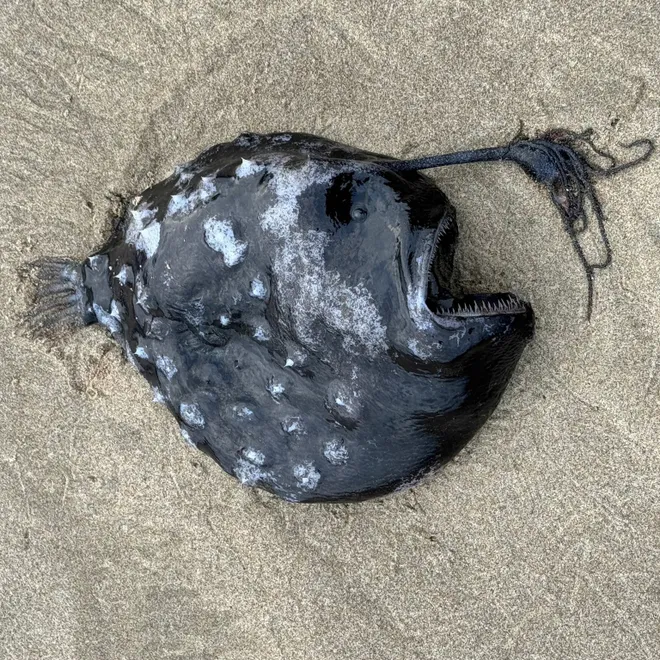Alien-like creature discovered on Oregon beach

A rare deep-sea creature with alien-like feratures washed up on an Oregon beach's shore.
Local beachcombers found a deep-sea angler fish known as the Pacific football fish just south of Cannon Beach, Oregon, which is around an hour and a half drive northwest of Portland, said the Seaside Aquarium in a Facebook post on May 18.
The fish is rare, and according to the aquarium, only 31 species have been recorded worldwide.
"Living in complete darkness, at 2,000-3,300 feet (below the sea,) these fish are rarely seen," states its post.
The aquarium did not see the fish in person, but the person who found the fish sent photos of it to the aquarium, Keith Chandler, the aquarium's general manager, told USA TODAY.
"The person who found it didn't want to let us have it to preserve it," said Chandler.
Chandler said since the beach comber found the creature, they can do whatever they like with the rare fish.
More creature footage:Small 'species of concern' makes rare appearance on a national park trail camera
What is a Pacific football fish?
It's an angler fish, which may be familiar because a female angler fish was featured in Disney Pixar's 2003 movie "Finding Nemo," but it looks drastically different from the one found on the beach.
Angler fish are deep-sea creatures living in pitch-black darkness, and the aquarium states it's still unknown how they are able to do so.
"Little is known about (Pacific football fish's) life history but what is known is unusually fascinating," states the aquarium's post. " Like other angler fish, they use light that shines from a phosphorescent bulb on their forehead to attract prey"
Food is sparse in the deep waters where these odd fish live, so they're not selective about their cuisine and will eat anything "that can fit into their mouths."

According to the museum, females of the species actively hunt, but males are 10 times smaller than females and are more like parasites and "fuse" into the females of the species.
"They lose their eyes and internal organs, getting all their nutrients from their female partners," reads the aquarium's post. "In return, they provide females with a steady source of sperm."
Disclaimer: The copyright of this article belongs to the original author. Reposting this article is solely for the purpose of information dissemination and does not constitute any investment advice. If there is any infringement, please contact us immediately. We will make corrections or deletions as necessary. Thank you.






